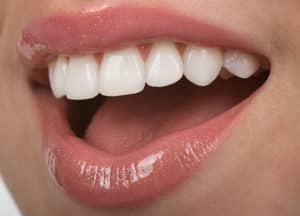A Healthier Diet Can Lead to Healthy Teeth


Sugar is one of the most widely consumed substance in the world, simply because it is found in most foods in modern times. In the past, sugar rarely found its way into natural or “healthy” foods. Because the amount of sugar you’re eating directly relates to your risk for tooth decay and oral health diseases, you have to be careful about what you are eating. Learn the truth about sugar intake in the U.S., foods that secretly contain it, and how a healthier diet can lead to better health and wellness, but also to beautiful, healthy teeth!
All About Your Teeth
Did you know that your teeth are the strongest substance in your body? Many people think the bones are the strongest. However, the bones are filled with spongy cartilage, blood vessels, stem cells and more. The teeth are about 96% pure mineral content made up of calcium, phosphate, magnesium and other minerals. That is how you can bite into hard foods and how your teeth can last for decades.
You have a set of baby teeth that come in between birth and age 3. As you grow as a child, your baby teeth will space out somewhat and will eventually fall out. This makes way for the adult, permanent teeth to come into the mouth. You will have 20 baby teeth that are hard, but delicate, and 32 permanent teeth that are stronger, tougher and will last you for life (if you care for them). However, your oral hygiene habits and your diet can make your teeth weak, decayed and you can easily lose them.

How Are Teeth Damaged?
Your teeth can become damaged through various ways. Dental injuries can certainly damage your teeth (such as with contact sports), but it’s the small and simple things that do the most damage over time. Your oral hygiene is a major reason your teeth become damaged. Do you brush your teeth? Floss? Use mouthwash to kill germs? These are all oral hygiene habits you should be practicing if you want to avoid tooth decay, gum disease, bad breath and if you want healthy teeth.
When you eat, sugars in your foods and drinks mix with mouth bacteria. That mixture creates a sticky, acidic film we call “plaque”. Instead of getting swallowed, that sticky film coats your teeth, especially along the gum line. Because it is acidic, it will go to work to weaken and demineralize your teeth. When it can break apart the minerals that hold your teeth together, it can decay them, eventually making craters of dead areas called “cavities”. You can’t get those areas back, and decay will continue to happen without swift dental treatment.
Your gums are also affected, as they get irritated by acidic plaque. The gums will react by becoming more red, swollen, and inflamed, and they will bleed easier. Without better dental hygiene or dental help, the gums will recede and your teeth can fall out.
How Do Drinks Affect Your Teeth?
Essentially, you practice a healthy diet for healthy teeth. To have healthy teeth, a good place to start is with your drinks:
- Carbonation: Any carbonated beverage (soda, water, etc.) contains carbonic acid. That is what gives drinks that fizzy pop. Carbonic acid—because it is an acid—will erode away your tooth enamel. It sits on the teeth and works to break up the minerals for about 30 minutes after you’ve finished drinking. Always wait those 30 minutes before brushing or you can brush away even more enamel.
- Citric Acid: Because this too is an acid found in many juices and drinks, it too can have the same effect as carbonation. Limit your lemonade and other citric juices if you want healthy teeth. Citric fruits can also have the same effects as citrus drinks.
- Water Additives: Chose water sweeteners that are dye-free and free of citric acid if you want healthy teeth. Choosing dye-free will mean that your teeth stay whiter for longer. When you drink items that have dyes, those colors slowly seep into cracks into your teeth.
- Milk: Milk is a great drink for your teeth. It has minerals that the teeth can take in and it nourishes your teeth. Regular water is also great and public water contains fluoride, which can strengthen your teeth. Avoid chocolate milk or milk containing high amounts of sugar, which leads to decay.

Foods and Sugars
With foods, you want to avoid all high-sugar foods. The more sugar you eat, the more plaque you make and the more your teeth can decay. Especially avoid sticky foods and treats such as taffy, gummies, dried fruit and caramels, as these stick sugars to your teeth longer. Avoid sucking on suckers or hard candies, which expose the teeth to sugar for a long time. To avoid dental injuries, avoid chewing ice or particularly hard foods. Chop up nuts, hard fruits and hard vegetables before you eat them. Check your food labels to avoid high amounts of added sugars, which decay your teeth. Essentially, you just want to avoid too much sugar in your diet, and you want to brush your teeth after eating those foods so decay and erosion don’t happen.
Healthy Teeth Through Oral Hygiene
The American Dental Association recommends that people brush their teeth at least twice a day, for two minutes at a time. Patients should also be flossing 1-2 times a day, making sure to use new floss to get up into the gum line, scraping teeth with the floss as they move the floss away from the teeth. The ADA also recommends biannual dental visits for comprehensive exams and dental cleanings.
Mouthwash that kills decay-causing bacteria and fluoride treatments that strengthen the teeth are also very good oral hygiene helps. If you want healthy teeth, you must do these small and simple things at home. When you’re doing those things and you still don’t have healthy teeth, you can call Dr. Ania’s office at 303-443-0998 for a free consultation.


